| IN A NUTSHELL |
|
As we consider the potential consequences of a global catastrophe, one might wonder which species would emerge unscathed. While humans often perceive themselves as the most adaptable creatures on the planet, there exist several species whose resilience far exceeds our own. These animals possess unique adaptations that allow them to thrive in extreme conditions, from intense radiation to prolonged periods of scarcity. In this exploration, we delve into the remarkable survival strategies of eight species that could potentially outlast humanity, inheriting a post-apocalyptic earth.
Tardigrades: The Ultimate Survivors
Tardigrades, commonly known as water bears, are microscopic creatures renowned for their extraordinary resilience. These tiny beings can endure conditions that would obliterate most life forms. By curling into a dehydrated state known as a “tun,” tardigrades can halt their metabolism and survive without water for years. This ability enables them to withstand extreme temperatures, from near absolute zero to 302°F, and endure intense radiation levels.
Remarkably, tardigrades have even survived the vacuum of space. In 2007, an experiment revealed that these creatures could survive exposure to outer space, highlighting their unparalleled toughness. Despite their resilience, tardigrades do require a thin film of water and a suitable chemical environment to revive and reproduce. Their combination of toughness and minimal resource requirements makes them a top contender for survival in a post-catastrophic world.
Cockroaches: Persistent Pests
Cockroaches are often cited as potential survivors of a nuclear apocalypse, thanks to their ability to endure high radiation levels. While not entirely immune to nuclear fallout, cockroaches can survive radiation doses that would be lethal to humans due to their infrequent cell division. These insects are generalists, capable of consuming almost anything, and they can survive long periods without food or water.
However, the notion of cockroaches being indestructible is a myth. Extreme heat and shockwaves from a nuclear blast would likely prove fatal. Nonetheless, in a world ravaged by disaster, cockroaches could persist by scavenging scraps and finding shelter. Their ability to survive without a head for several days, due to their unique respiratory system, adds to their resilience. While not invincible, cockroaches are well-equipped to endure in a post-apocalyptic landscape.
Vultures: Nature’s Cleanup Crew
Vultures play a crucial role in ecosystems as nature’s cleanup crew, feeding primarily on carrion. Their stomach acid is potent enough to neutralize harmful microbes, allowing them to consume decaying flesh without falling ill. Vultures can soar over vast distances in search of food, making them adept at locating carcasses in disrupted environments.
Despite their advantages, vultures are vulnerable to certain poisons, particularly residues in livestock carcasses, which have led to population declines in some regions. In a world where chemical contamination is widespread, this sensitivity could be a significant drawback. However, in scenarios where natural die-offs occur without chemical interference, vultures could thrive by exploiting their biological adaptations. Their ability to find food in scarce conditions positions them as potential survivors of a global catastrophe.
Sharks: Masters of the Deep
Sharks are apex predators with a wide range of adaptations that allow them to endure in challenging environments. Many shark species can survive long periods between meals, with some, like the Greenland shark, thriving in frigid waters with exceptionally low metabolic rates. Sharks also have the ability to scavenge, providing a fallback strategy if food sources become scarce.
Deep-sea and polar sharks inhabit areas buffered from surface-level disturbances, offering them some protection in the event of a global crisis. However, they are not immune to large-scale oceanic changes, such as deoxygenation and acidification, which could threaten their survival. Nonetheless, the Greenland shark, with its potential lifespan of several centuries, exemplifies the endurance of sharks and their capacity to weather long-term environmental shifts.
Emperor Penguins: Arctic Survivors
Emperor penguins are adept at enduring extreme cold and scarcity, relying on dense fat stores and energy-saving huddles to survive the harsh Antarctic winter. Males can fast for over three months while incubating eggs, showcasing their ability to endure prolonged periods without food. Their compact bodies and tightly packed feathers minimize heat loss, making them highly efficient in retaining warmth.
However, emperor penguins are heavily reliant on stable ice platforms for breeding and feeding. A catastrophe that accelerates sea-ice loss or disrupts access to prey beneath the ice could threaten their survival. As long as their icy habitat remains intact and food sources are accessible, emperor penguins are well-prepared to withstand the challenges of a post-apocalyptic world.
The resilience of these species raises compelling questions about the future of life on Earth. While humans consider themselves the pinnacle of adaptability, these creatures demonstrate nature’s incredible capacity for survival. As we contemplate the potential for global catastrophe, we must ask ourselves: What lessons can we learn from these remarkable survivors, and how can we apply them to ensure the continued existence of life on our planet?
Did you like it? 4.5/5 (26)

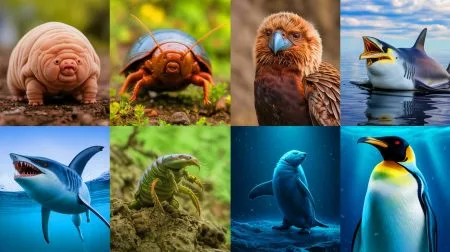


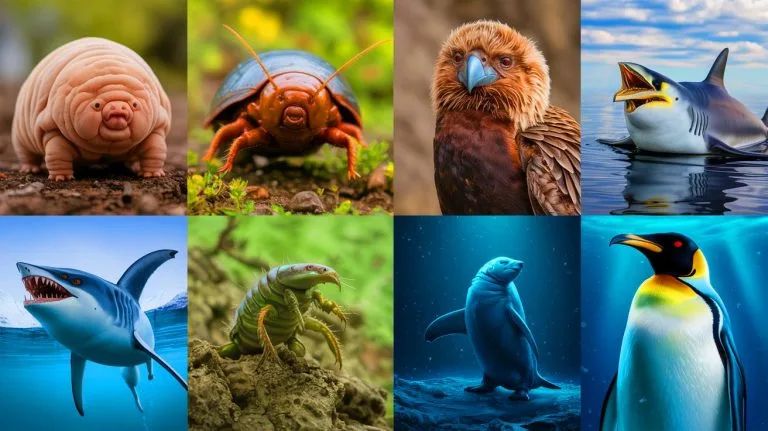
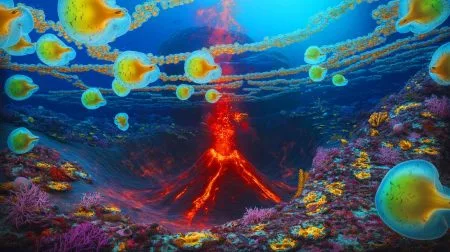
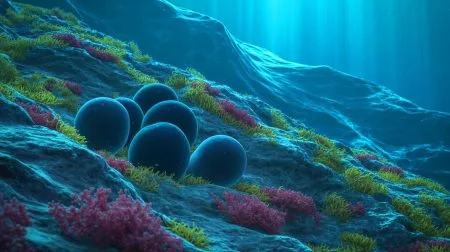
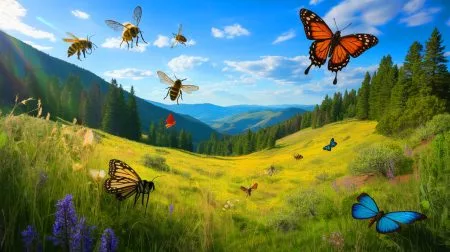
Wow, tardigrades are like the superheroes of the micro-world! Can we learn how to be that resilient? 🦸♂️
Wow, Tardigrades are like the superheroes of the micro-world! 🦸♂️
Great article! It’s amazing how diverse survival strategies are among different species.
I’ve always feared cockroaches, but now I respect their resilience.
Do tardigrades have any natural predators?
Wow, vultures as nature’s cleanup crew is a cool perspective! 🦅
Is there anything that can actually kill a tardigrade?
Thanks for the information! Didn’t know sharks could fast for so long. 🦈
Why are tardigrades not more popular in sci-fi movies? They’re the real deal!
So, do penguins rely on ice more than food for survival?
How do sharks adapt to deoxygenated waters?
Emperor penguins sound pretty chill, literally! 🐧
Can tardigrades really survive 302°F? That’s hotter than my oven!
What’s the biggest threat to vultures currently?
Do all sharks have the same survival abilities, or are some more resilient than others?
Thanks for this article! It’s mind-blowing how life finds a way.
Is there a limit to the radiation levels cockroaches can withstand?
It would be interesting to see a documentary on these resilient species.
Why are tardigrades not affected by the vacuum of space? 🧐
So, are sharks the ultimate survivors of the oceans?
I never thought of vultures as survivors, but it makes sense.
If cockroaches can survive a nuclear apocalypse, why can’t we? Asking for a friend.
Wow, penguins can fast for three months? That’s impressive!
Is there any way to harness the survival traits of these species for human benefit?
The resilience of these species is truly inspiring. 🙌
How do scientists study the survival capabilities of these species?
Are there any creatures that can survive without water at all?
It’s kind of comforting to know some life forms will persist no matter what.
Tardigrades need a cartoon series! They’re the toughest creatures around!